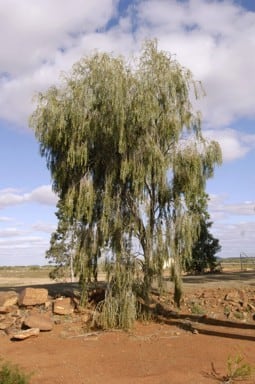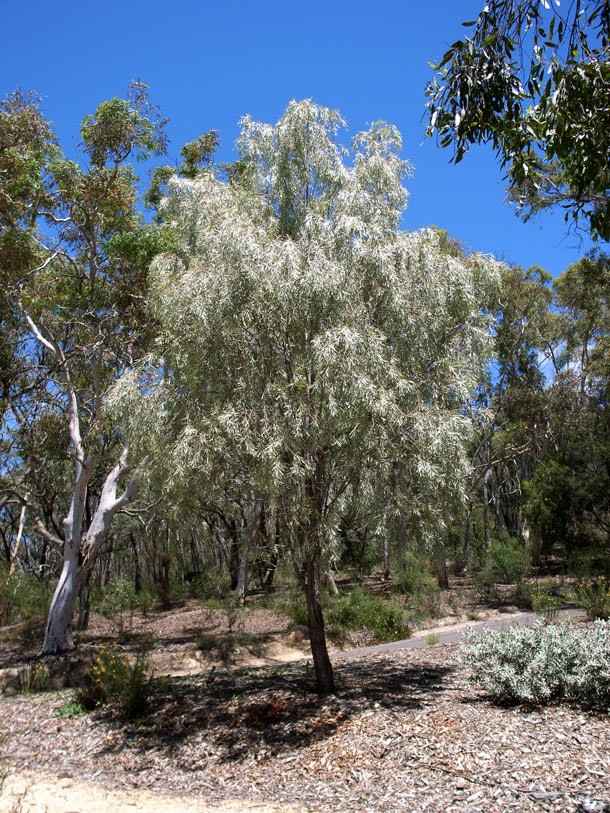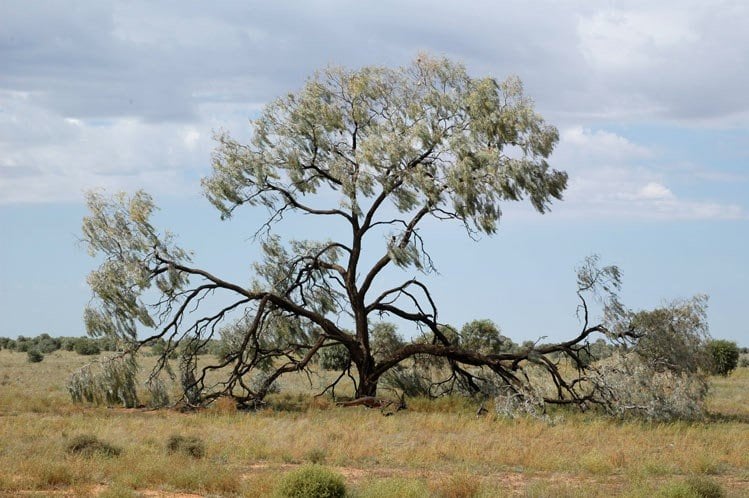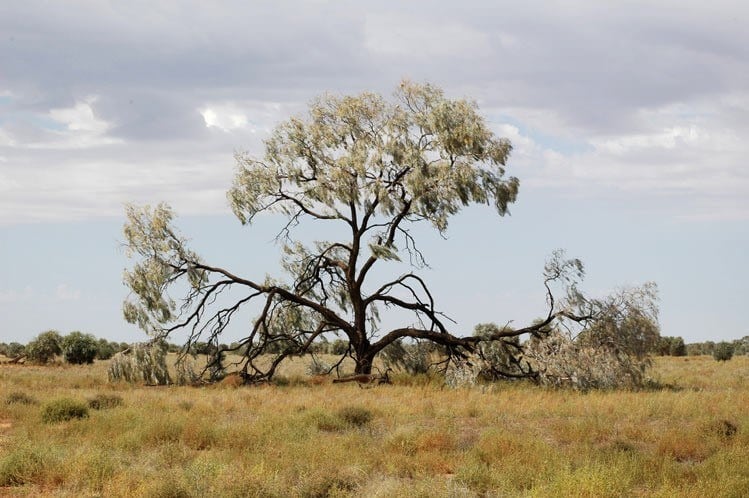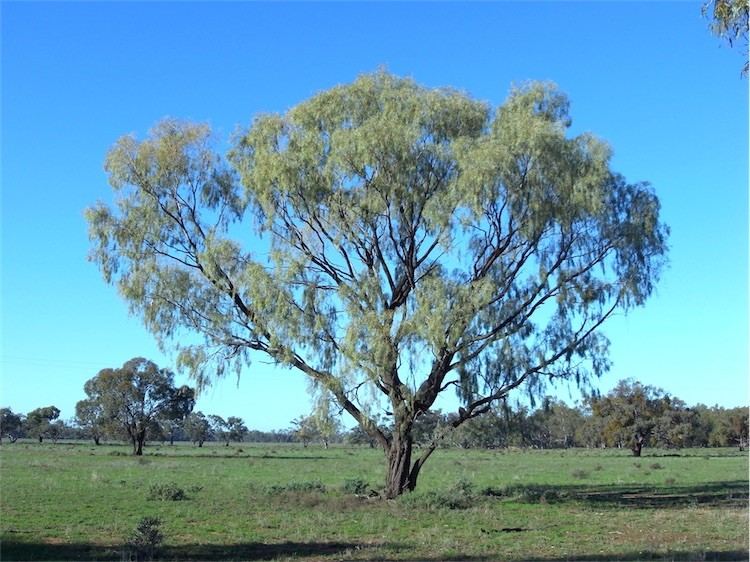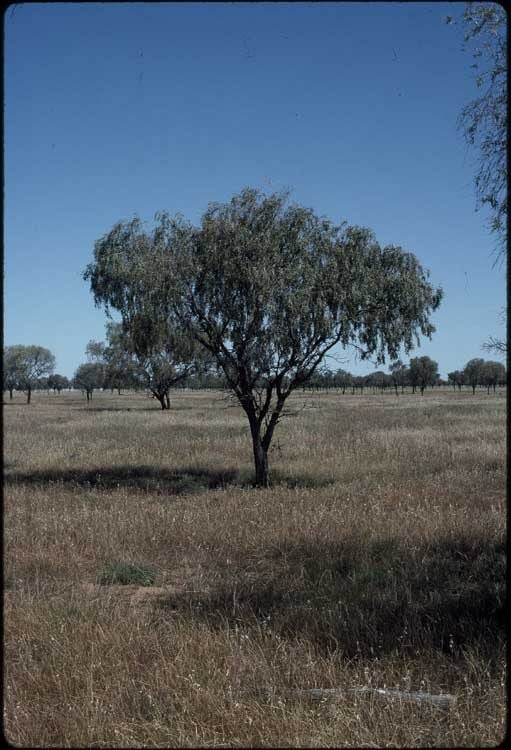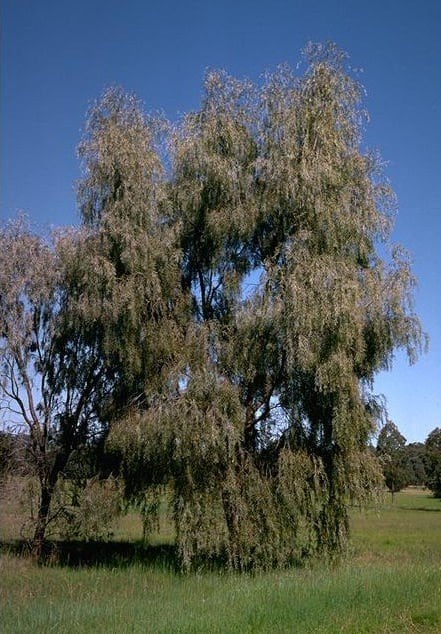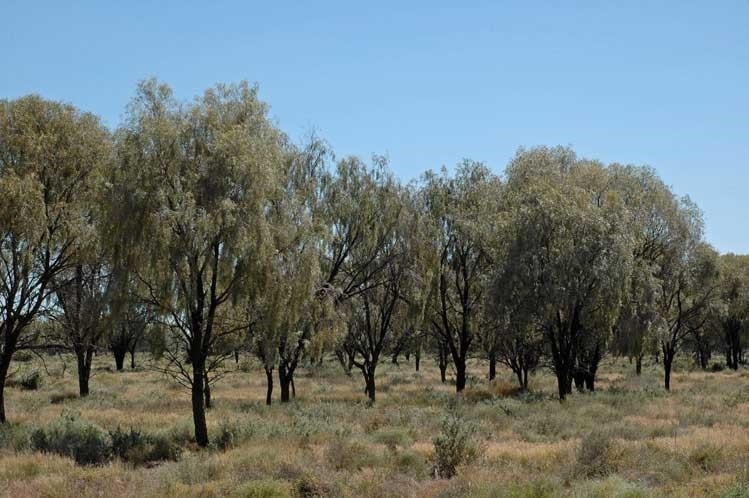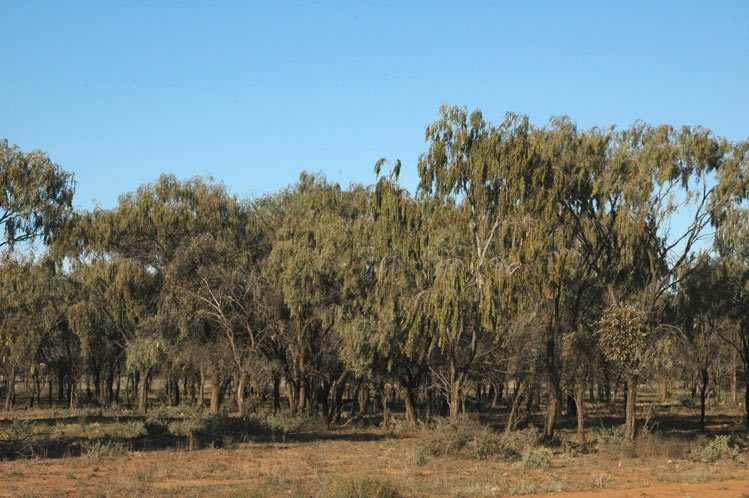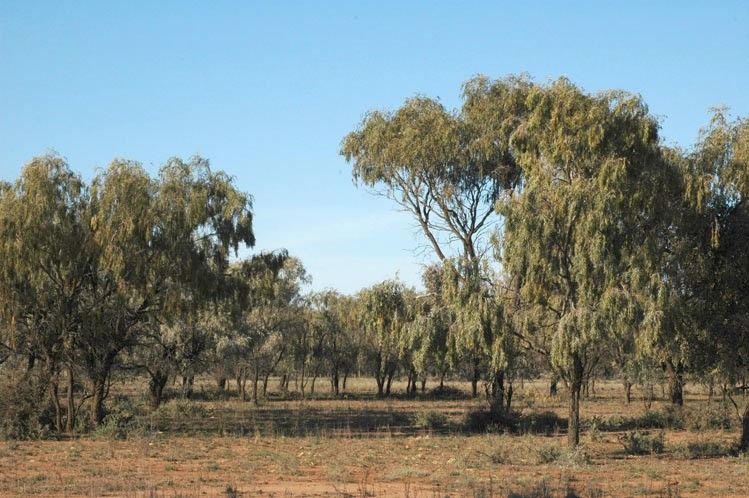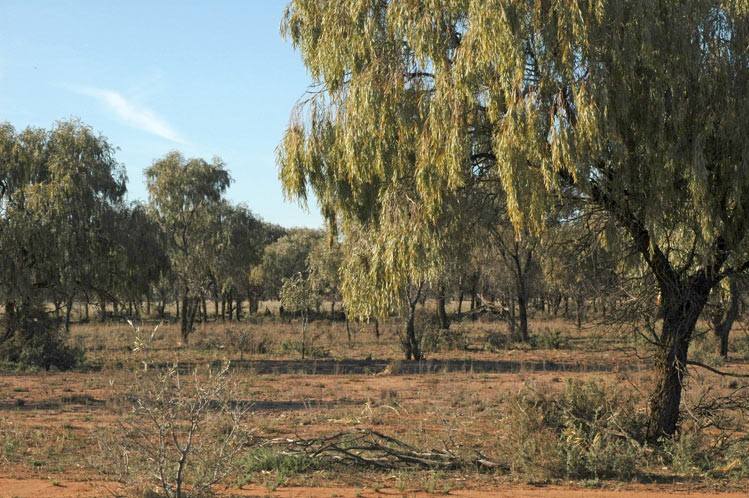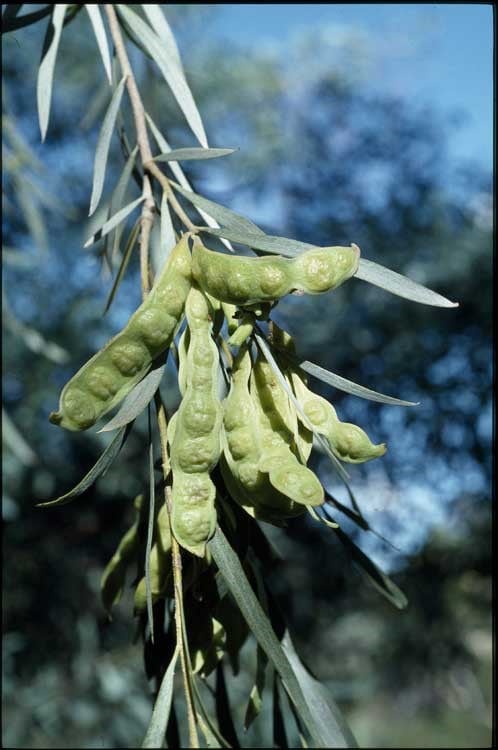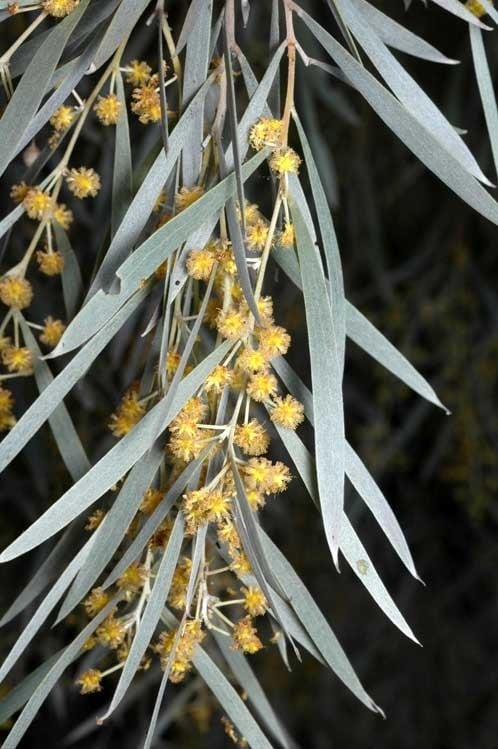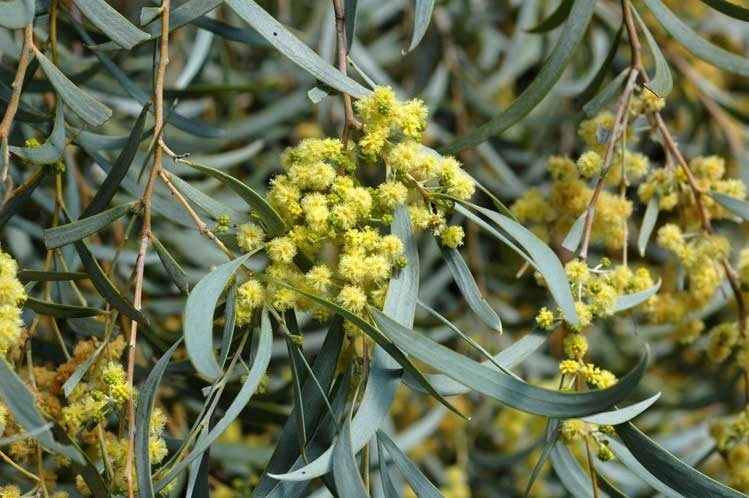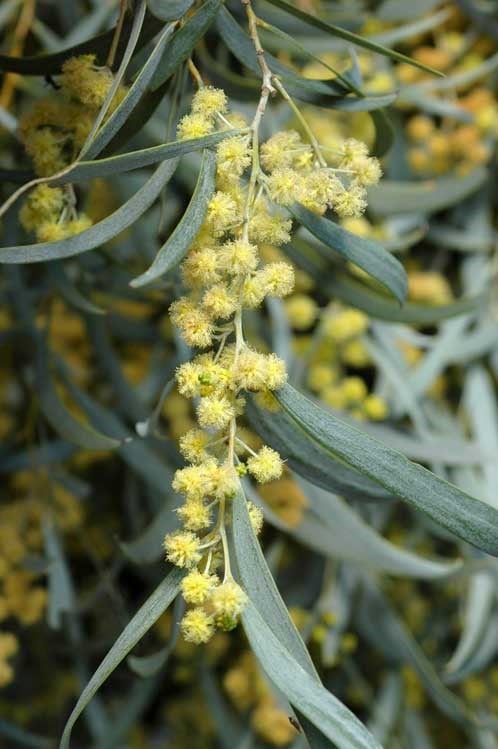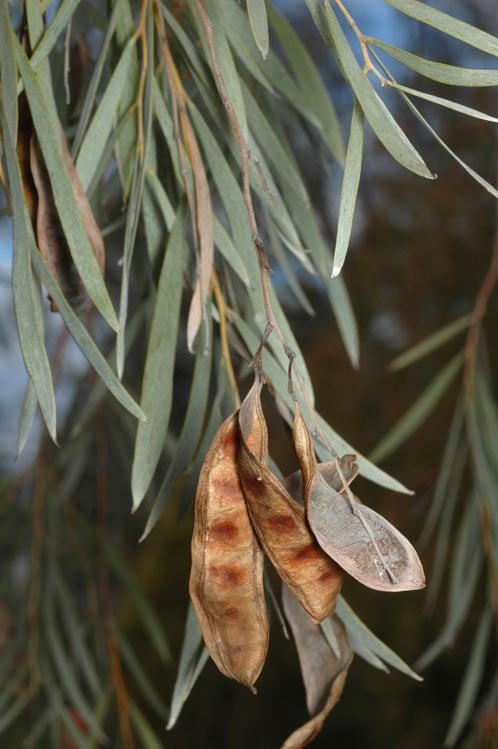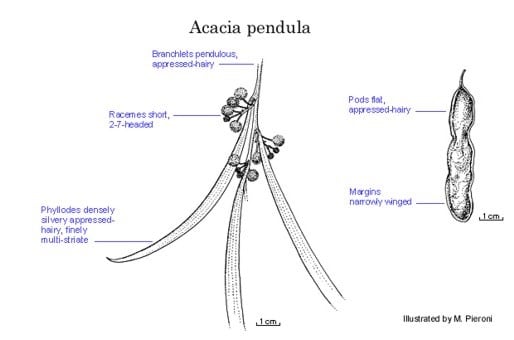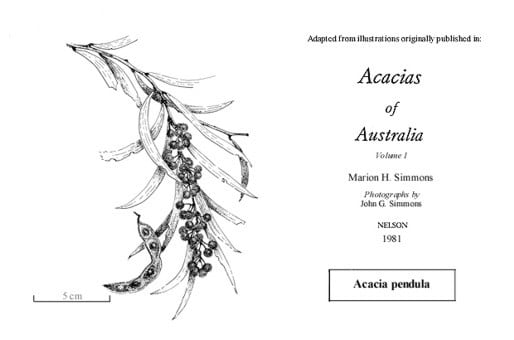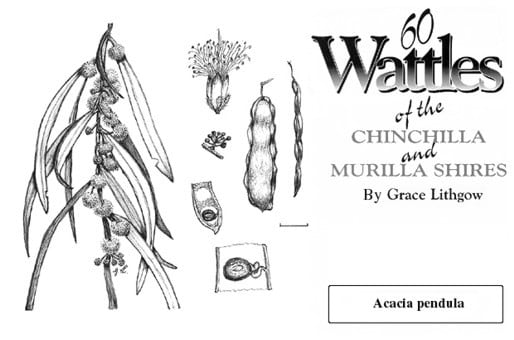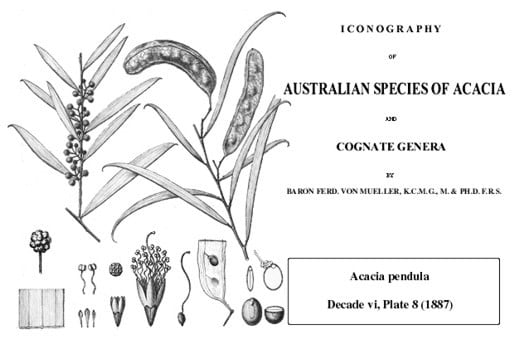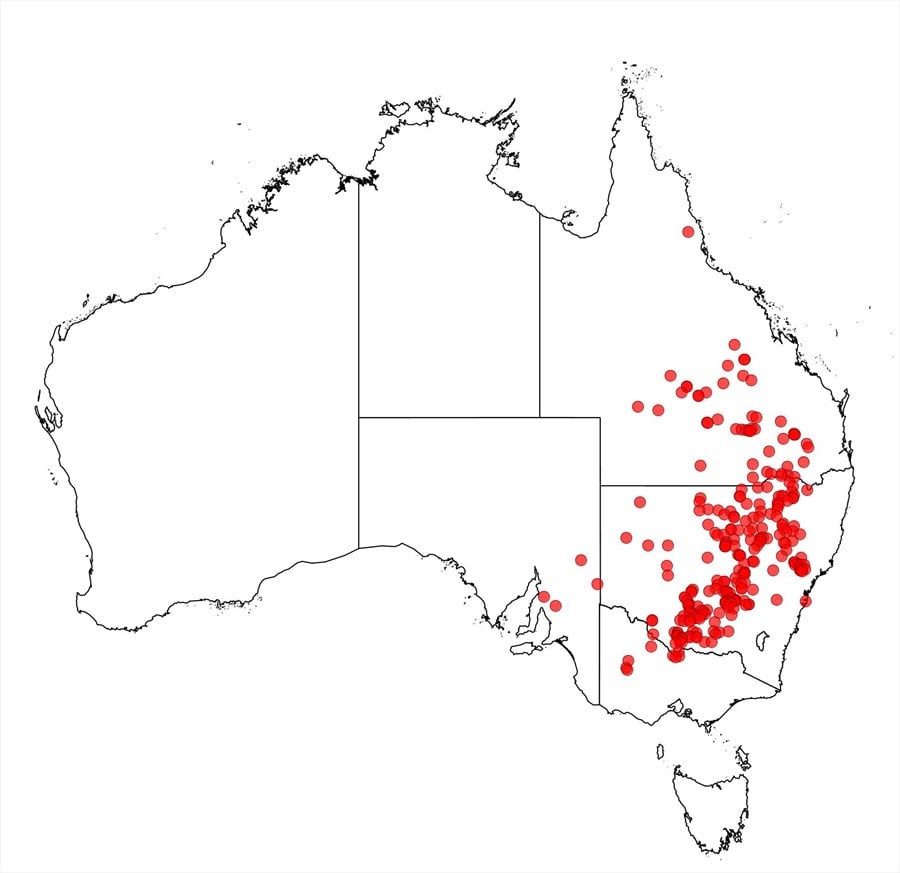Acacia pendula A.Cunn. ex G.Don
WATTLE
Acacias of Australia
Common Name
Weeping Myall, Myall, Boree, Balaar, Nilyah, Silver-leaf Boree, True Myall
Family
Fabaceae
Distribution
Occurs W of the Great Divide from Emerald in central Qld S through N.S.W. to the Vic. border, with isolated occurrences in the Little Desert area, western Vic., and far eastern S.A.
Description
Tree to 12 m high with pendulous branches. Bark hard, fissured, dark grey to black. Branchlets slender, appressed-puberulous, glabrescent. Phyllodes narrowly elliptic, straight to recurved, 4–14 cm long, (3–) 4–10 mm wide, with an innocuous acute to acuminate and normally shallowly curved apex, ±thinly coriaceous, densely appressed-puberulous when young, glabrescent, with numerous closely parallel nerves of which 1–3 more evident than the rest. Inflorescences 2–7-headed racemes; raceme axes 2–15 mm long, appressed-puberulous; peduncles 3–8 mm long, appressed-puberulous; heads globular, 3.5–4.5 mm diam., occasionally larger, 10–25-flowered, light golden; bracteoles spathulate. Flowers 5‑merous; sepals free to 1/2-united. Pods narrowly oblong, flat, slightly raised over and irregularly slightly constricted between seeds, straight, curved or twisted, to 13 cm long, 8–18 (–20) mm wide, chartaceous to thinly coriaceous, coarsely reticulate, appressed-puberulous; margins ±winged, 2–3 mm wide. Seeds transverse, soft, broadly elliptic to ±discoid, 5–9 mm long; funicle/aril fleshy.
Habitat
Grows mainly on floodplains in fertile alluvial clay (and red earth soils in the S), sometimes dominant in woodland and open woodland.
Specimens
S.A.: 20 km SE of Plumbago Stn, R.J.Bates 41688 (AD). Qld: Augathella–Morven road, J. & M.Simmons 1110 (PERTH); 11.3 km NW of Myall Downs, N.H.Speck 1980 (NSW, PERTH). N.S.W.: 76.3 km NE of Conargo between Hay and Darlington Pt, R.G.Coveny 12891 et al. (AD, BRI, CANB, MEL, NSW, PERTH, PRE, US); 47.1 km from Grenfell towards West Wyalong, N.Hall H79/66 (PERTH, TLF). Vic.: c. 8 km from Warracknabeal, near the Henty Hwy and opposite the aerodrome, H.B.Irwin (MEL1500972).
Notes
Because of the pale, silvery foliage and form of the crown of the tree, it has been cultivated extensively in this country and abroad, as, for example, in Iran and Kuwait.
Related to A. homalophylla which has narrower, unwinged pods, glabrous phyllodes and longitudinal seeds.
FOA Reference
Data derived from Flora of Australia Volumes 11A (2001), 11B (2001) and 12 (1998), products of ABRS, ©Commonwealth of Australia
Author
Minor edits by B.R.Maslin & J.Rogers
R.S.Cowan
This identification key and fact sheets are available as a mobile application:
URL: https://apps.lucidcentral.org/wattle/
© Copyright 2018. All rights reserved.
